What’s Your Religion? Dior Tears
|CALI DEWITT
On the occasion of Dior Men launching a series of Dior Tears pop-up stores which can be discovered in London, from July 8 to 13; in Tokyo, from July 11 to 30; in Seoul, from July 13 to 22; and Shanghai, from July 15 to 25, we are publishing a feature with Tremaine Emory in conversation with Cali DeWitt from 032c’s Issue #43.
The Great Pyramids of Giza were constructed in the 26th century BC to store all the things pharaohs would need when they became gods in the afterlife—gold, jewelry, statues, pottery, and the like. Fast forward to today, and the pyramids recently served as the backdrop for Dior's Autumn/Winter 2023-24 collection, which featured a collaboration between Dior and Tremaine Emory's Denim Tears. Titled "Dior Tears," the collection pays tribute to Black artists, including James Baldwin and Miles Davis, who found refuge and were celebrated in Europe during the 1950s when segregation was in full swing in America—and, in the case of Davis, were later inspired by Ancient Egypt (see: "Pharoah's Dance" on Bitches Brew). The collection's aesthetic is an amalgamation of ostensible contradictions—the look of Black Ivy League students in the 50s and 60s and the style of jazz musicians—that converge into a coherent, effortless bespoke gestalt.
Tremaine Emory founded Denim Tears in 2019 and has described it as "African-American sportswear," dealing with the complexities of the African diaspora. In February 2022, he became the creative director of Supreme, where he has explored Supreme's archive and touted denim. Here, he talks to his old friend Cali DeWitt about his brand, the show in Egypt, being back in New York, and life after illness.
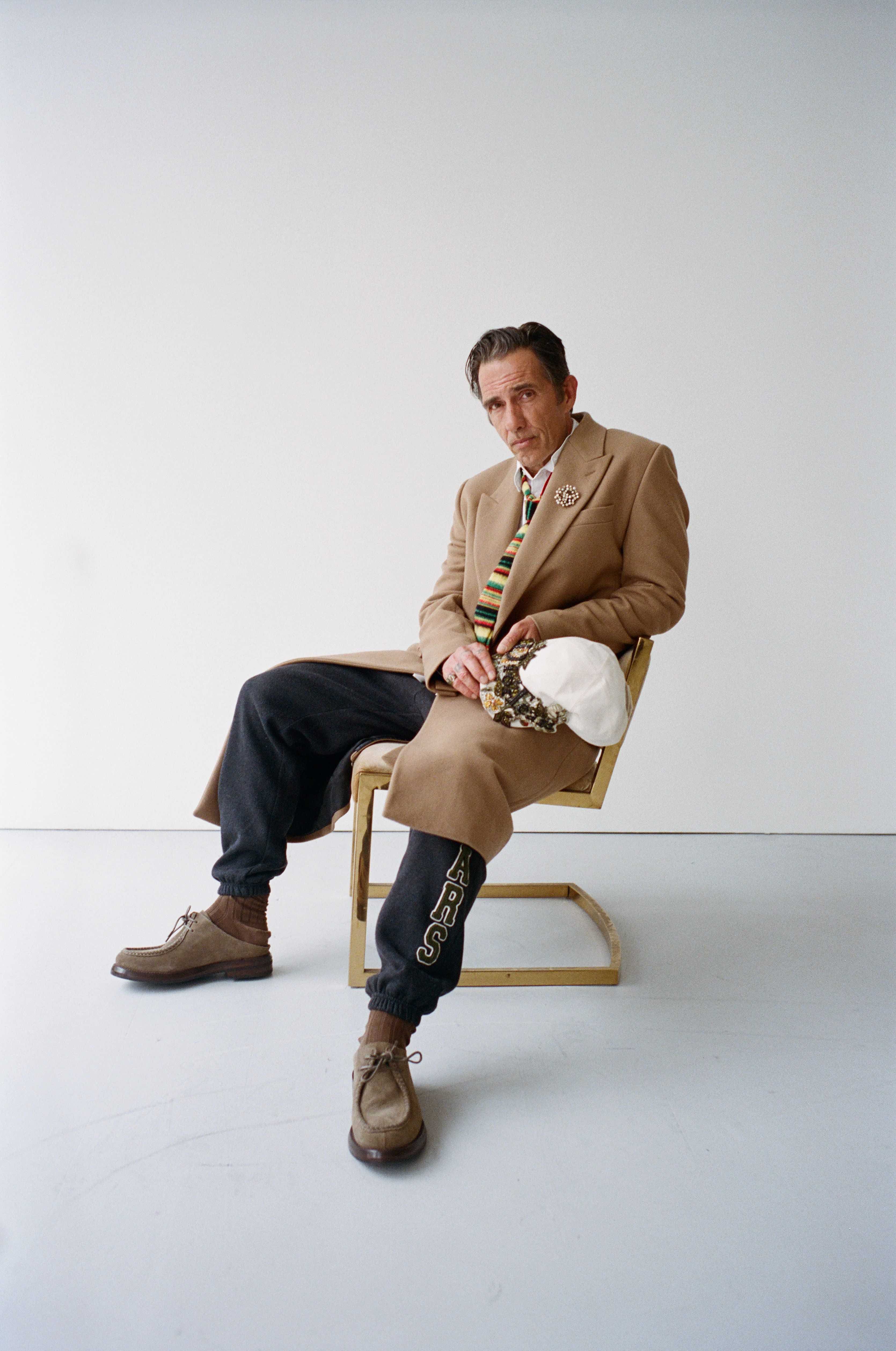
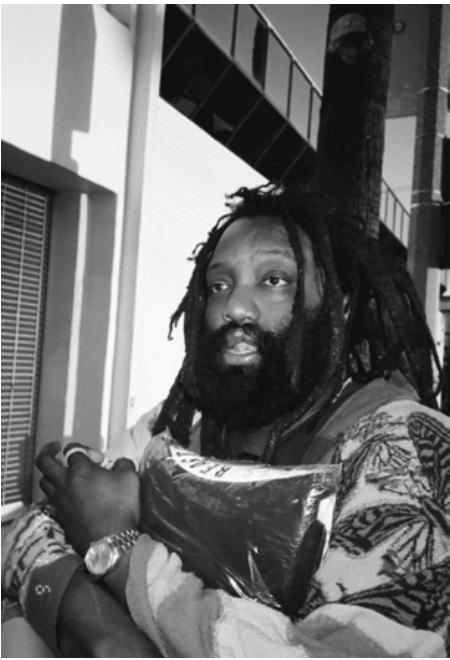
CALI DEWITT: We can talk about whatever we want, but I think most of all, I miss you. I miss you being in LA.
TREMAINE EMORY: I was just telling my girl I miss hanging out with you and Virginia. And then also I haven't gotten to see my godson. He's so beautiful.
CD: It's the best thing that's ever happened to me. I always think about how it's going to be the best thing that's ever happened to you too. Let's talk about stuff. I got a chance to see all the Dior Tears and wear a bunch for the day.
TE: For real?
CD: Yeah, they took pictures of me in it, and it looks great. I love the shoes. I really hope I wind up with some. Which I don't feel with a lot of stuff I see. Not to diss, I just don't need any more clothes.
TE: I'm pretty sure the garage is full.
CD: The garage is full. The closets are full. But how did that collaboration come about?
TE: Kim Jones is an old buddy. We've known each other since like 2006, and Kim saw what I did with Denim Tears. He was always a big supporter. We always knew what the other was doing and the opportunity came up when he wanted to put on younger brands. First there was ERL, and the next season was Denim Tears.
CD: How did you meet?
TE: He had a fashion show above the tunnel that my friend Shelley Lopez was walking in. I was invited to go to the show by Joey, my friend and colleague at Marc Jacobs in the West Village women's store—you know, I was a stock guy, and Joey was a sales associate. I met Kim at the show, and at the after party we were kicking it. Then we just kicked it when he was in New York. When I moved to London, we started running into each other a lot more. We had mutual friends, he was friends with my boss, Hugo Scott, who ran the Marc Jacobs store in London. So Kim, Honey Dijon, and Judy Blame would all come hang out in the store.
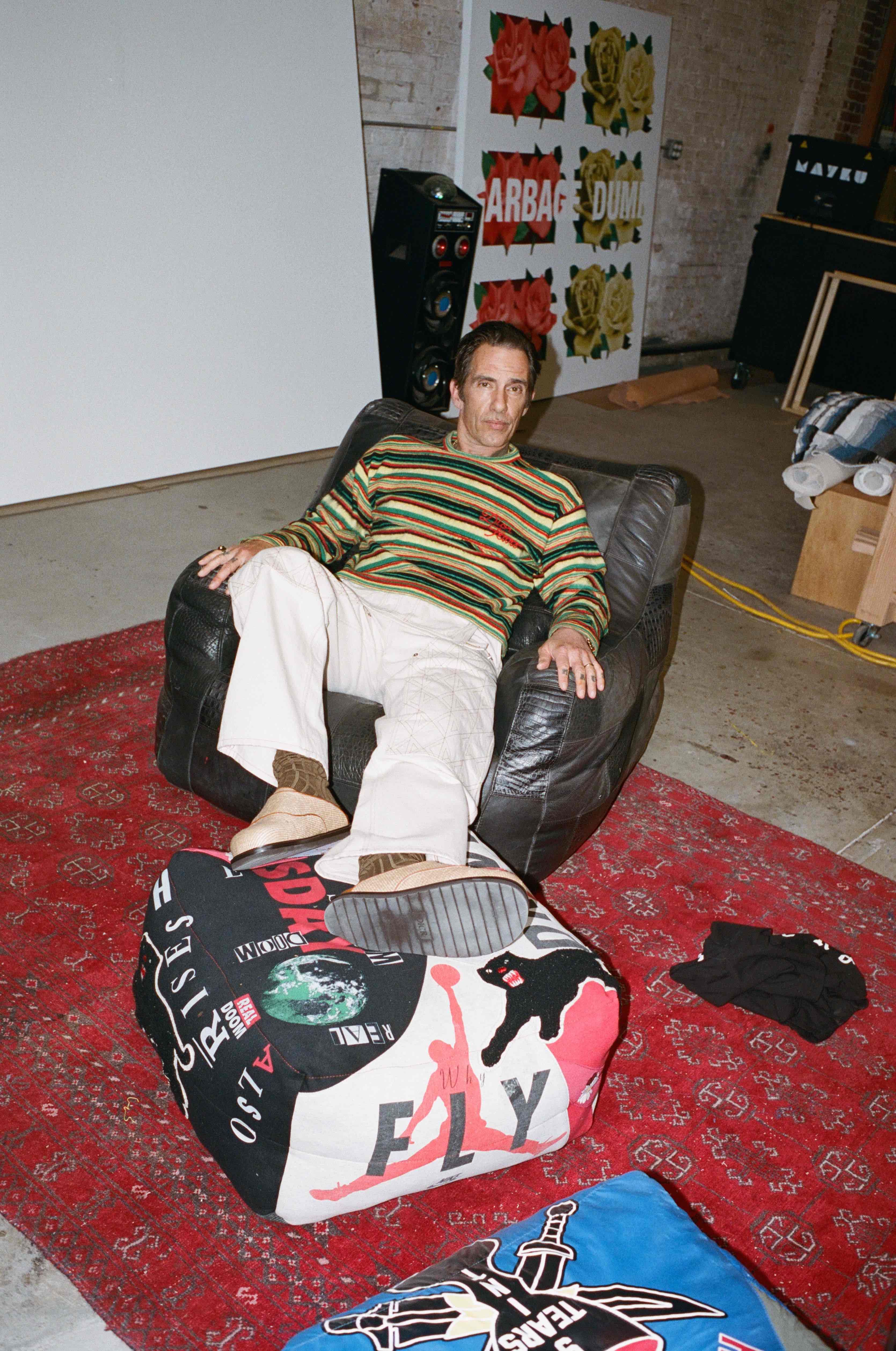
CD: The show in Egypt looked incredible. I had FOMO. And I don't really get FOMO.
TE: I didn't have FOMO because I was sick and recovering. I was just so focused on getting better and getting out of the hospital. I was like, no big deal—but that was just me lying to myself. I was being delusional in a negative way to get myself not to be so gutted that I wasn't there. But I was stoked to see friends there. The response was heartwarming.
CD: Working with your friends is the best. When I try to go outside of that, it just doesn't work.
TE: If I wasn't so fortunate to work with so many genuine friends, I would maybe still enjoy it, but not in the way I do in the "making stuff game." It's a blessing. Anyone, in any industry, that gets to work with friends, genuine friends, is lucky because a lot of people don't.
CD: I feel very fortunate. I've been thinking about this a lot because I've been sober for 22 years since a few days ago.
TE: Wow.
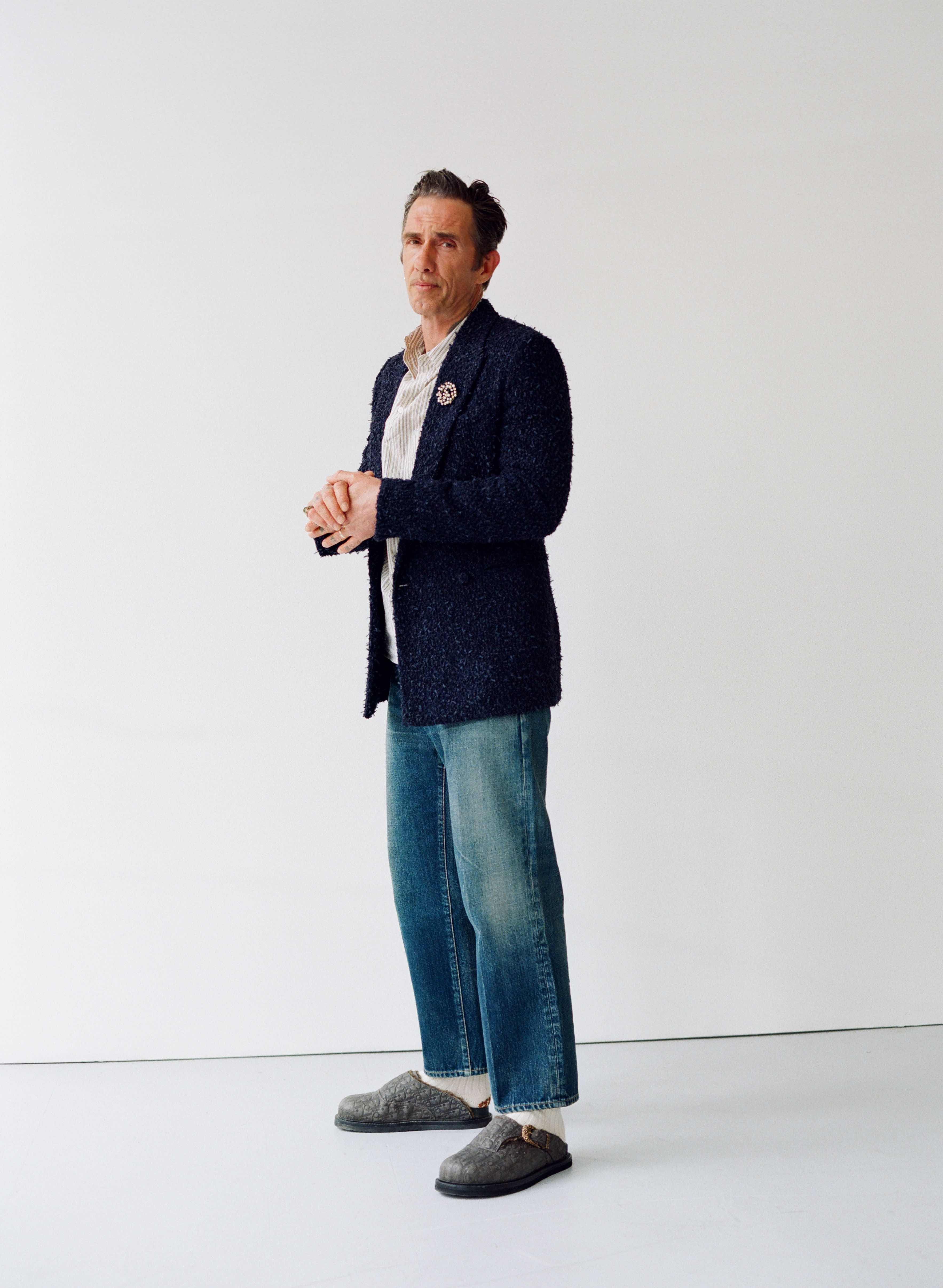
CD: The main thing I think about is how I would have missed everything. Not just now, having a wife and a new baby. Even you and I wouldn't have ended up becoming friends. It's a huge list of things I would have missed. Because even if I didn't die. I wouldn't have been a functional human being. I'd be worried about myself every day. Thinking about myself all day, "What am I going to do today?" The mindset that I had, as a young person who spent a lot of time drinking and doing drugs, I really would have missed a lot. So gratitude is a big part of my life and yours.
TE: If I had a gun to my head and someone asked, "What's your religion?" I guess mine would be gratitude. That would be my God: gratefulness. It helps you. When you practice it, when something really fucked up happens, like what happened to me in October—I had an aneurysm and my legs are messed up. I have to work around the problems that I have from getting sick. But I'm fucking happy to be here. Even before I got sick, I've had so many great things and great people in my life. And I still do.
CD: In terms of being grateful, it's not the things you have, it's the people in your life, it's the experiences. If you have that attitude, you walk through the bad things differenty. With more ease and acceptance and grace. You mentioned being sick, which I feel like you don't talk about.
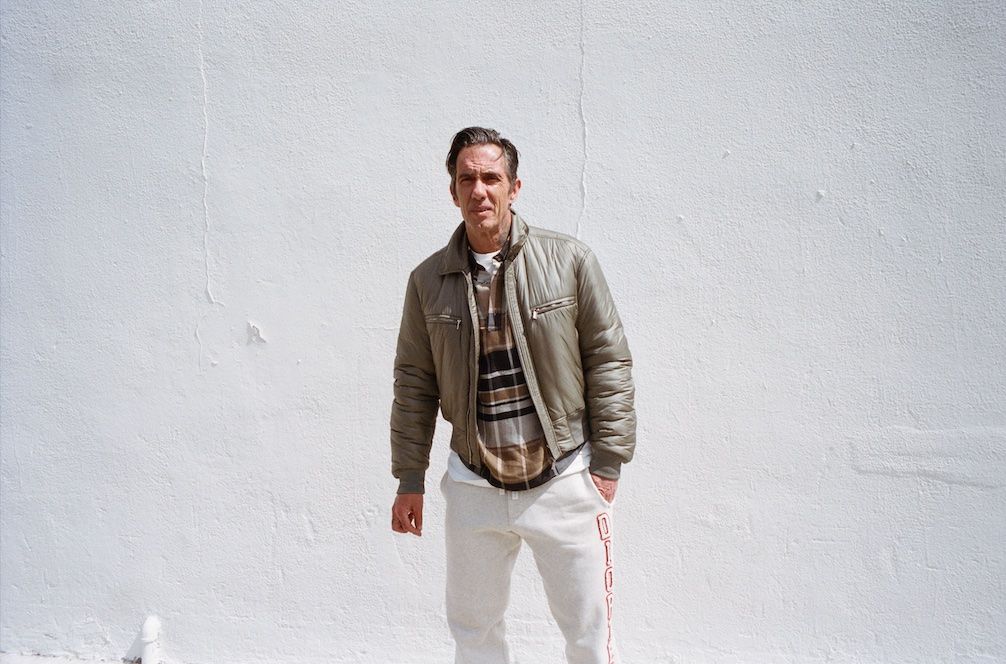
TE: It's not something I'm not talking about. But it's not something that I'm making paramount. Me getting sick doesn't define me. What happened to me is not such a big deal, it's being human. If you see me in a wheelchair, yeah, I'm temporarily in a wheelchair while building my legs back up. This is just a part of my life now. I'm more wrapped up in "woah, I'm still here. And, "What am I going to do now?" Eight in ten people who get a lower aorta aneurysm die. My
doctor said, there's like a five percent chance of me surviving that surgery.
CD: Well, I love your ability to approach it. You see people who have something bad happen, and they let it define them. They use it in a negative way. And I know you're not going to do that.
TE: No way.
CD: So, you're living in New York for the first time in a long time.
TE: Yeah, it's been almost 12, 13 years.
CD: It probably feels somewhat surreal and good to be home because I mean, it is your home. You moved back there for Supreme. How's that going?
TE: It's surreal to live long enough and develop the skills to assume any position at a place like Supreme, let alone to become creative director. I've always been into what the brand represents. There are so many connections from when I hung out at Union around 1999, like my good friend Ricky Saiz, who has been in some form of fashion for years. I remember when he showed me his portfolio before he went to meet with James Jebbia and interviewed there. This was around 2008. I remember when Ricky first started. I remember when Angelo Baque first started. And I remember when I saw the Public Enemy Vans collaboration. Those were more than just getting jiggy with it. It was a skate shoot but it had this rap group from the 80s—I thought, this is nuts. This never existed in my world. It was an education. I learned things from Supreme, like about the artists Dan Coleman and Damien Hirst. I didn't even want the job. I just thought, this is so cool. My friend said, he did retail, and now he's the designer of Supreme?
CD: It felt like it was for you.
TE: Again, I'm gratetul. I nave nad people be like, Yo, do you feel pressure? I'm like, nan, I us feel honored.
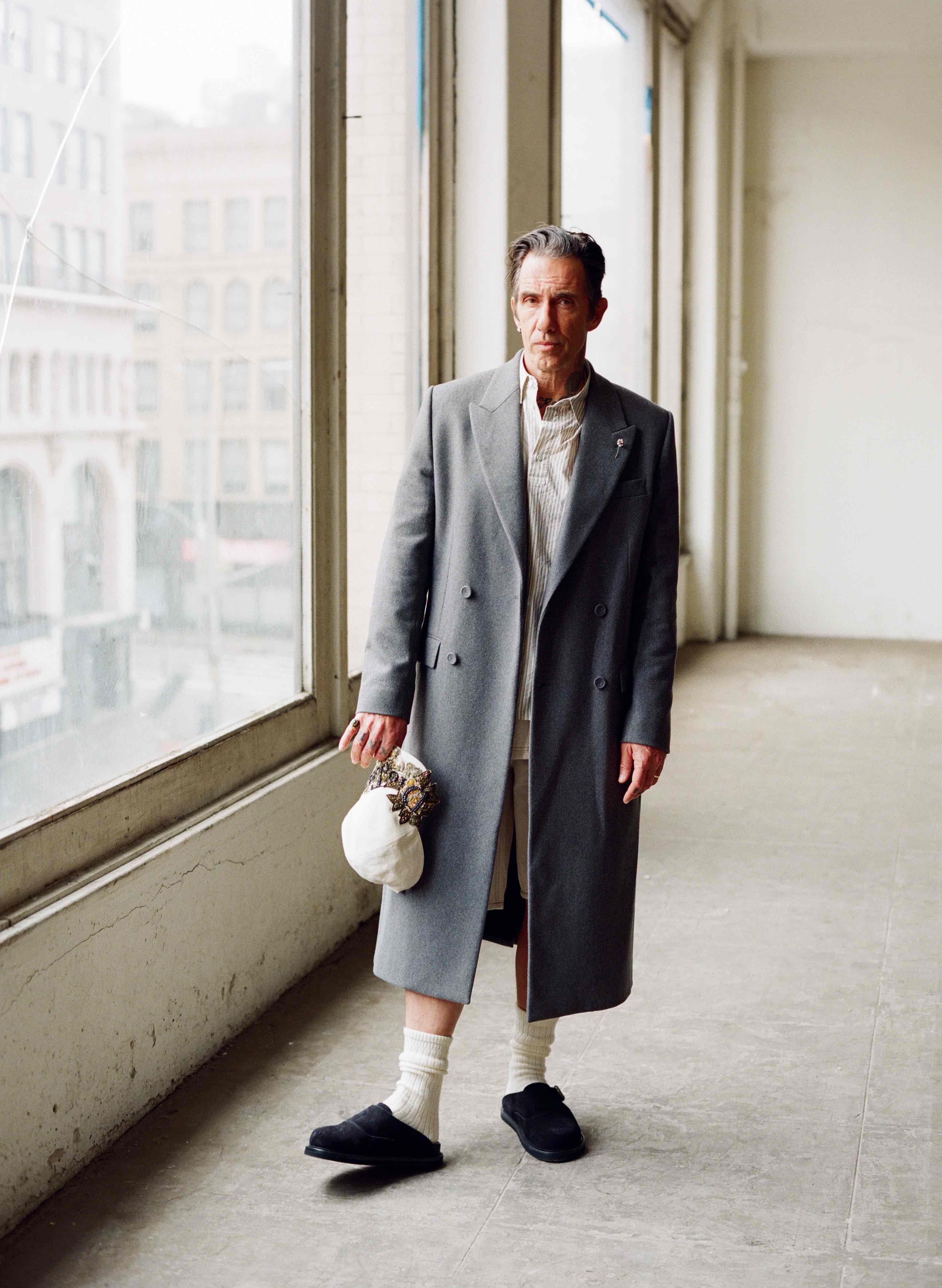
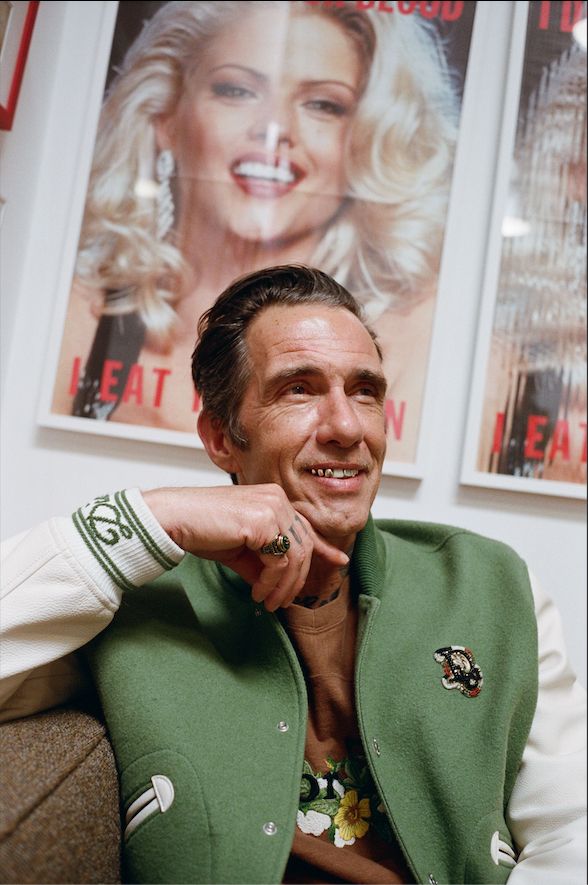
CD: I always think how happy I am that the dreams I had 20 years ago didn't come true. Because they were whack and educated dreams. Right now, the entire world wants to be famous. They'll do whatever it takes to be rich and famous. I think that if that dream came true for most people, they wouldn't know wat to do with it, and they'd be unhappy. You and I know plenty of rich, famous people who aren't happy. It's not a good tradeoff for me. I want to be healthy and experience life.
TE: That's where I get a kick. Sometimes I dislike the notoriety that I have attained through the work that I do. When I moved back to New York to do Supreme on February 14th to the day got sick on October 8th, I'd be just walking to work—no fanfare, no hoopla—and I'd have people stopping me and saying, you just walk around? Of course, I do. Or I take the train. During the Tribeca Film Festival, Heat was being shown at this old theater in the Bronx, and there was a talk between Robert De Niro, Al Pacino, and Michael Mann before the film. Anyway, I took the train because it's faster. Then a couple kids were like, "Yo, this is wild, you're taking the train?" I said, it's not. I think as much as I wish I had no notoriety, sometimes I am happy that maybe in this world of fuckery, kids get to see me taking the train.
CD: It's not wild to take the train. What's wild is to take a helicopter. The money that you would spend, and that it wouldn't do anything other than being an Instagram moment. It's cool to take the train. Its cool to be efficient.
TE: I'm not putting myself on a pedestal. I'm not perfect, I'm flawed as everyone else. But what I stand for as a human being is that maybe a person can gain something from my notoriety because I gained a lot from my mentors slash friends, and meeting people. Just seeing others. Well, really from my parents to meeting people like you. I gained so much from the way you guys live. So, I hope I do the same.
CD: I want my friends to he the people who I want to be. The people who I learned from. The people who teach me, so thank you for teaching me to me.
TE: Likewise, Cali.
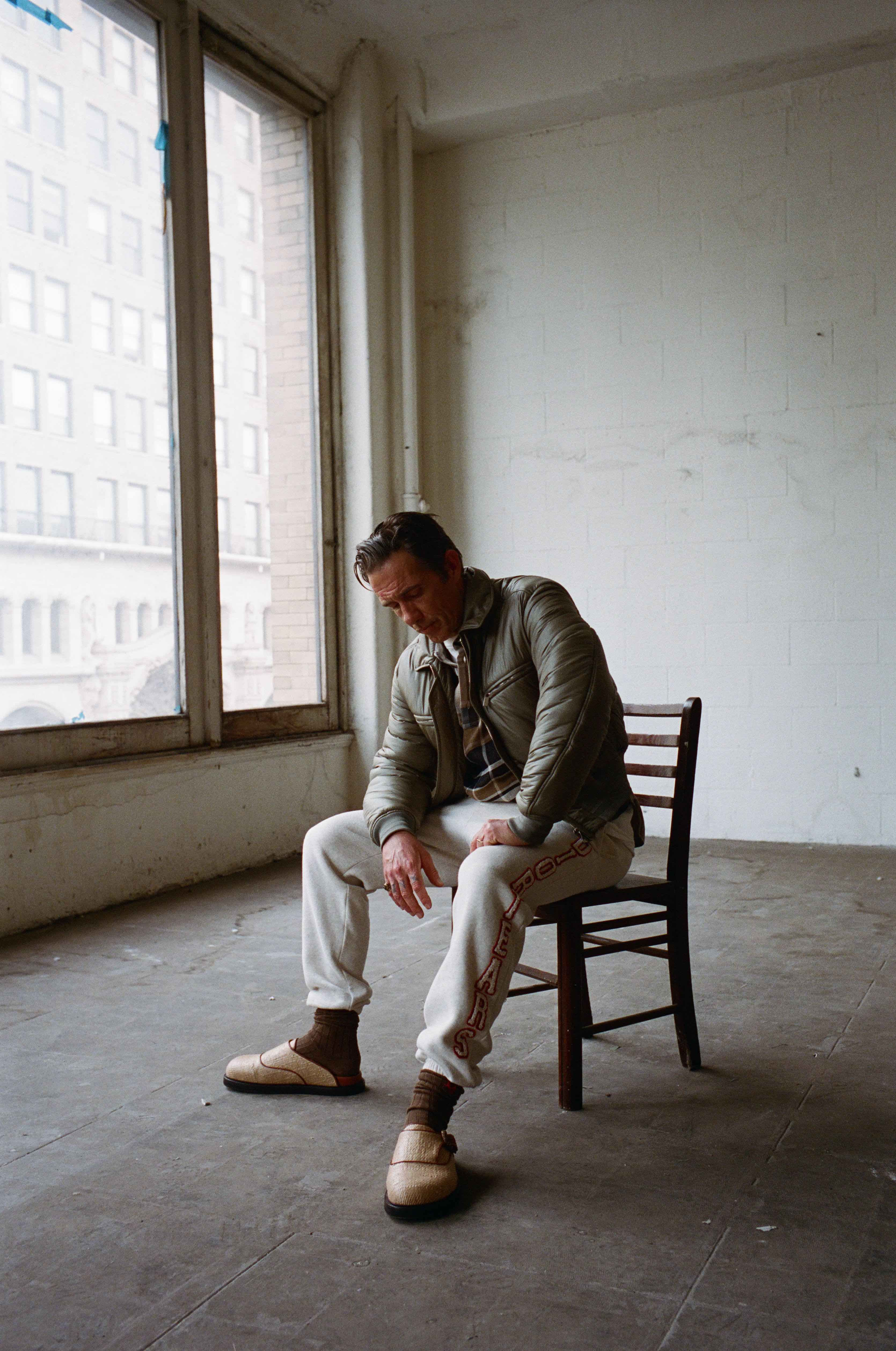
Pop-Ups
London, from July 8 to 11; Phonica Records, 51 Poland St, London W1F 7ND, United Kingdom
Tokyo, from July 11-30; TBA
Seoul, from July 13-22; TBA
Shanghai, from July 15-25; TBA
Credits
- Text: CALI DEWITT
- Photography: MAX FARAGO
- Fashion: RAS BARTRAM
- All Clothing: DIOR MEN
Related Content
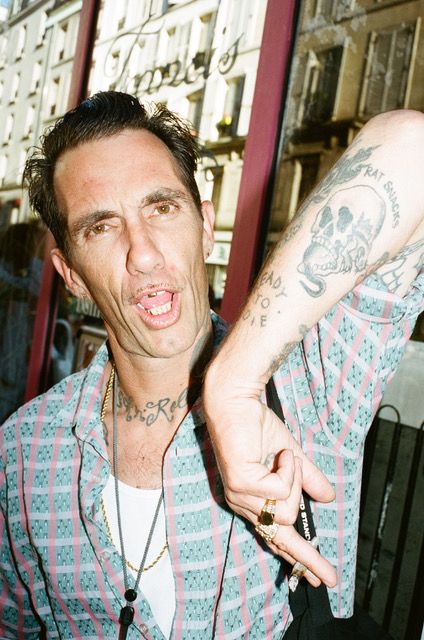
Cali Thornhill DeWitt Loves His Uncle Vic
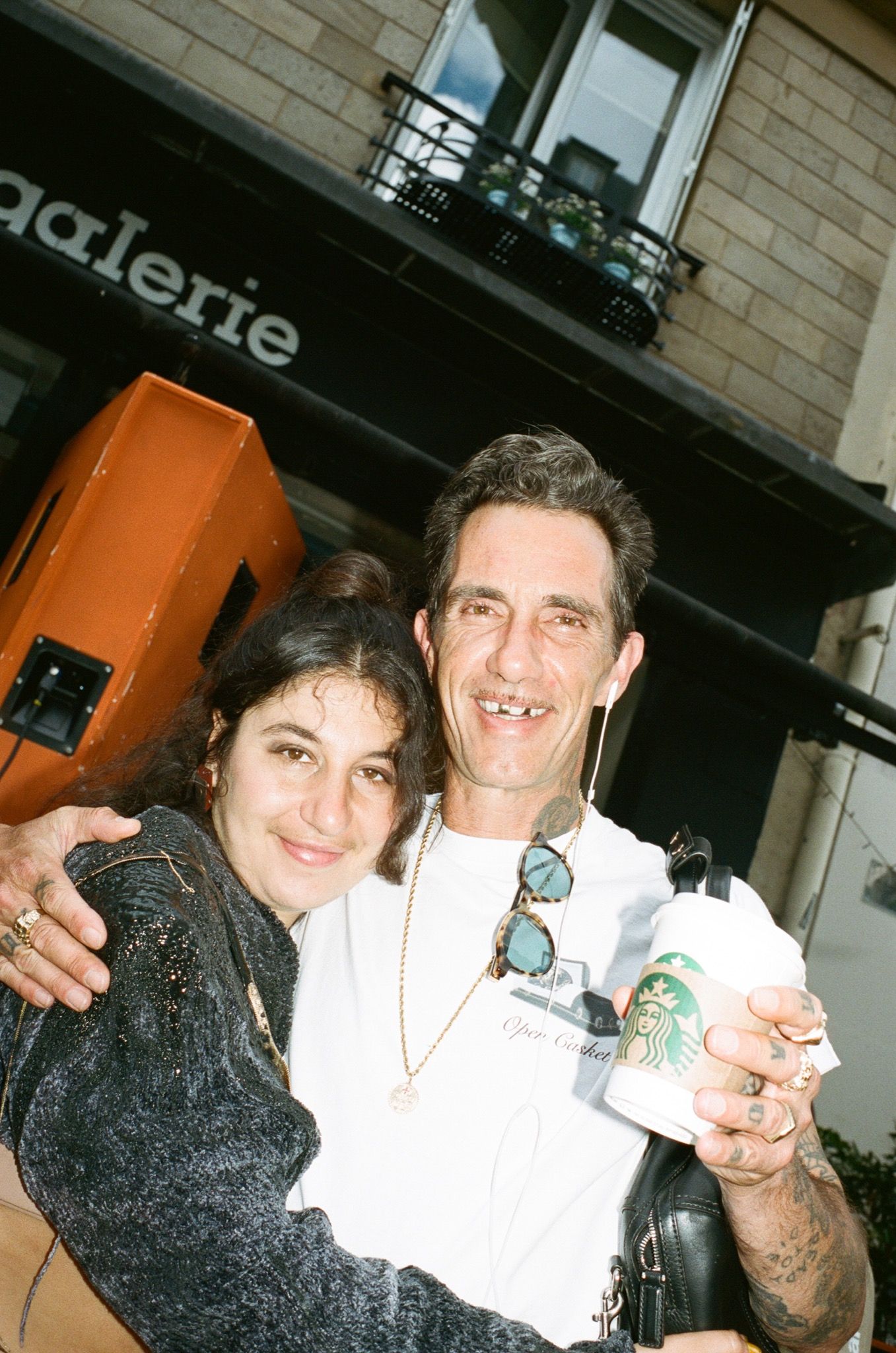
Life Can be a Family Business: No Show Official @ Paris Fashion Week
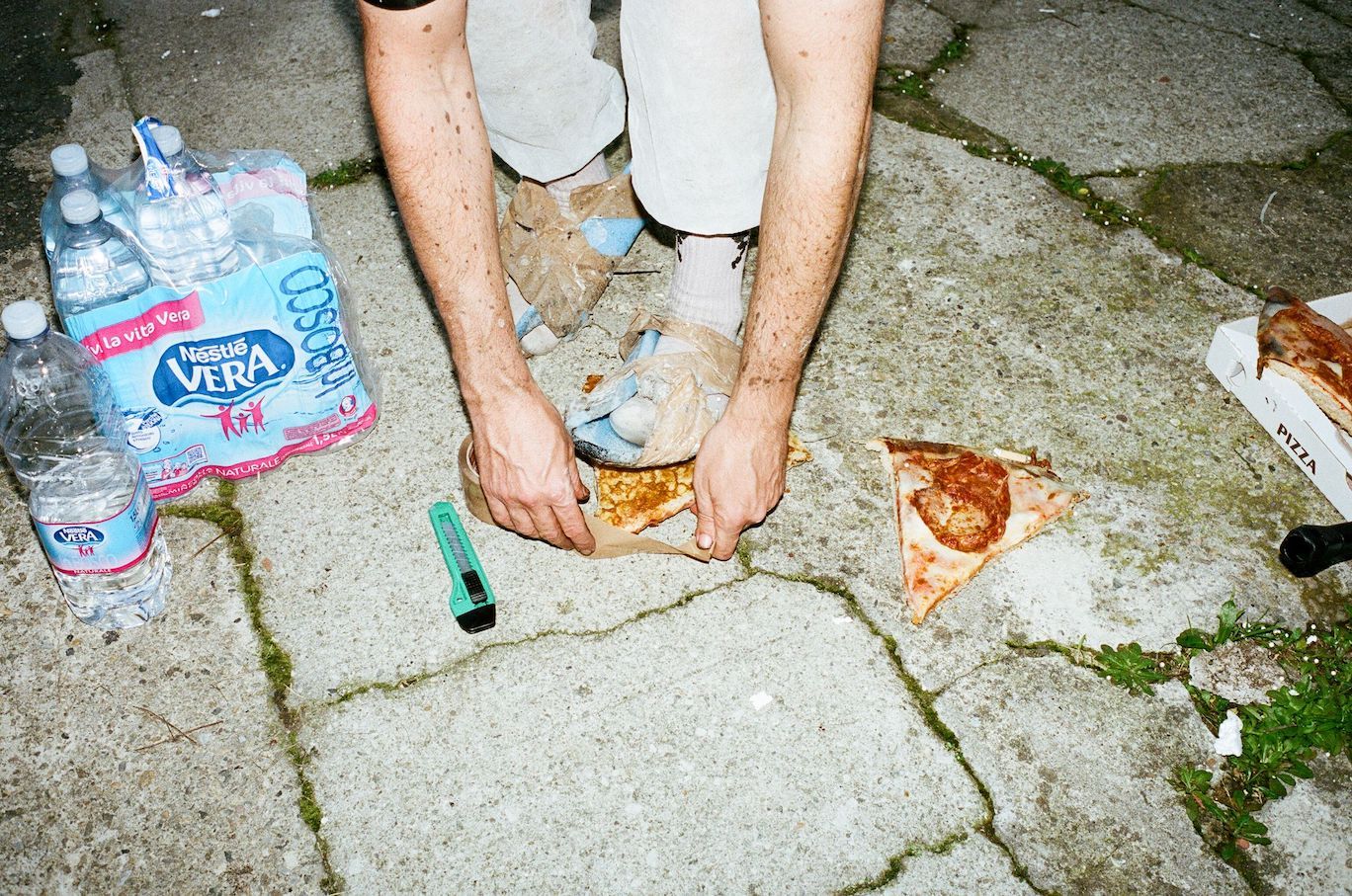
CONCRETE, DESIRE, PIZZA: The Making of CALI THORNHILL DEWITT + MISHA HOLLENBACH’s “Hot Fire 2”
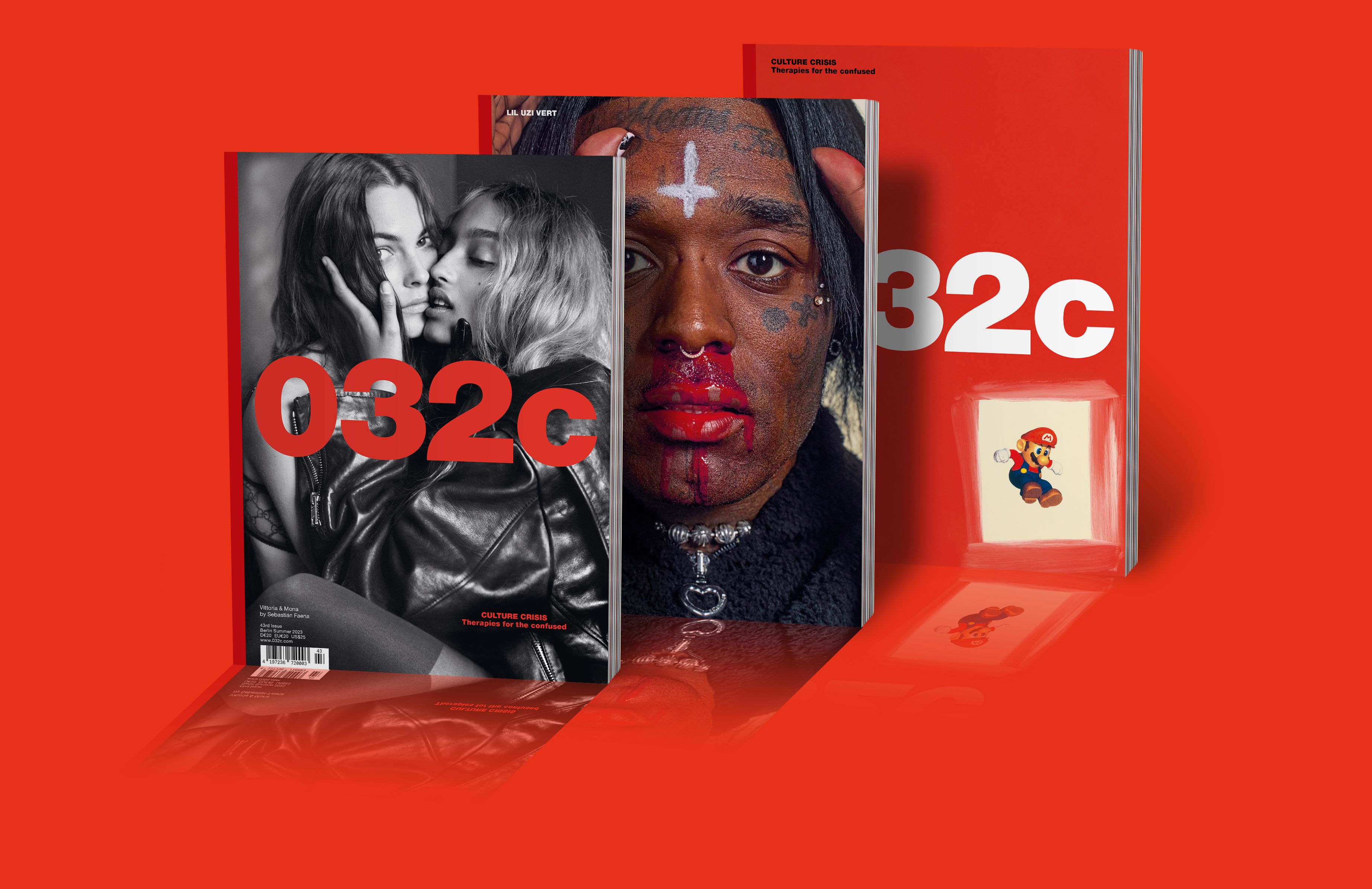
032c Issue #43 “CULTURE CRISIS. Therapies for the confused” Summer 2023
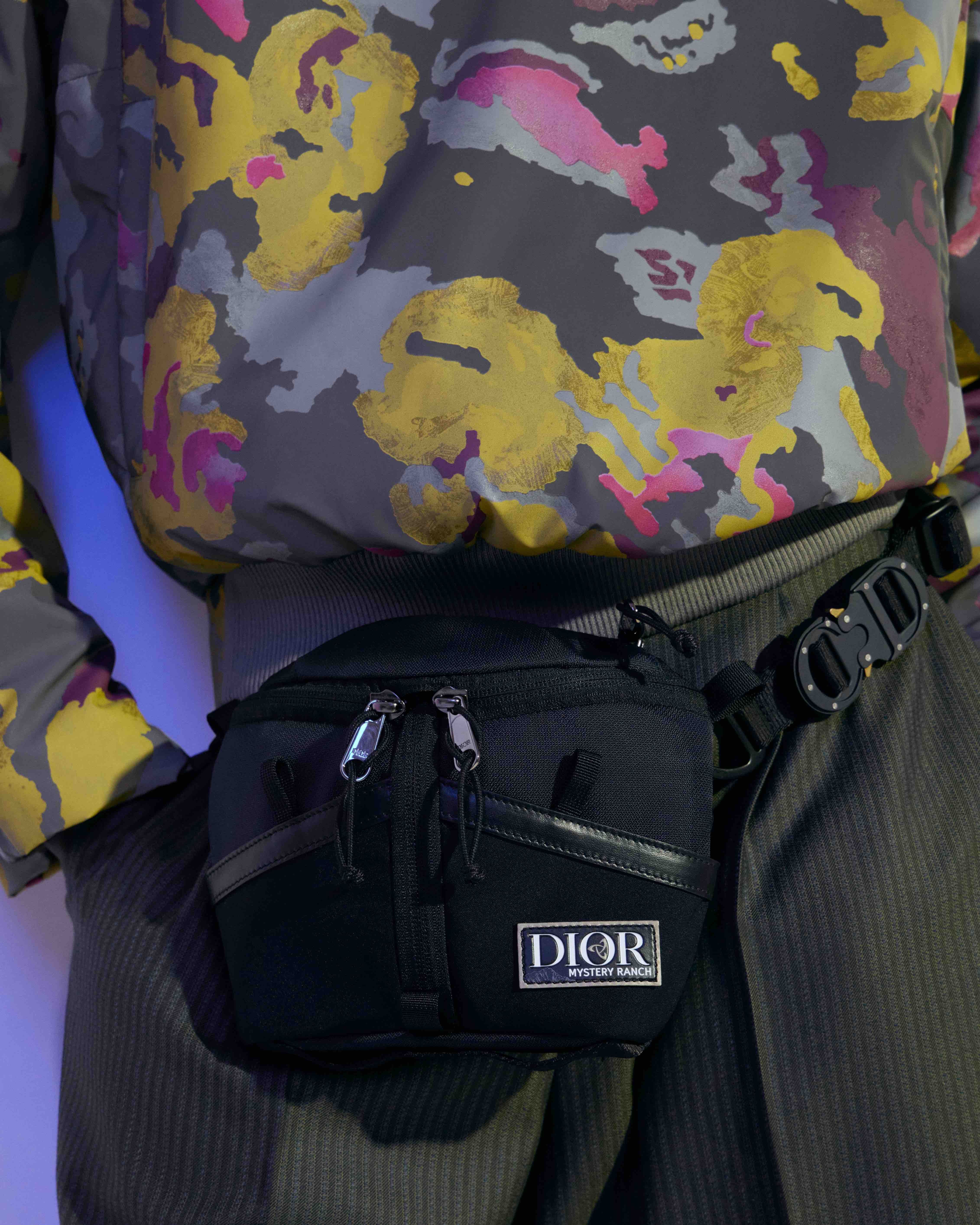
Objects of Our Time: Dior by Mystery Ranch
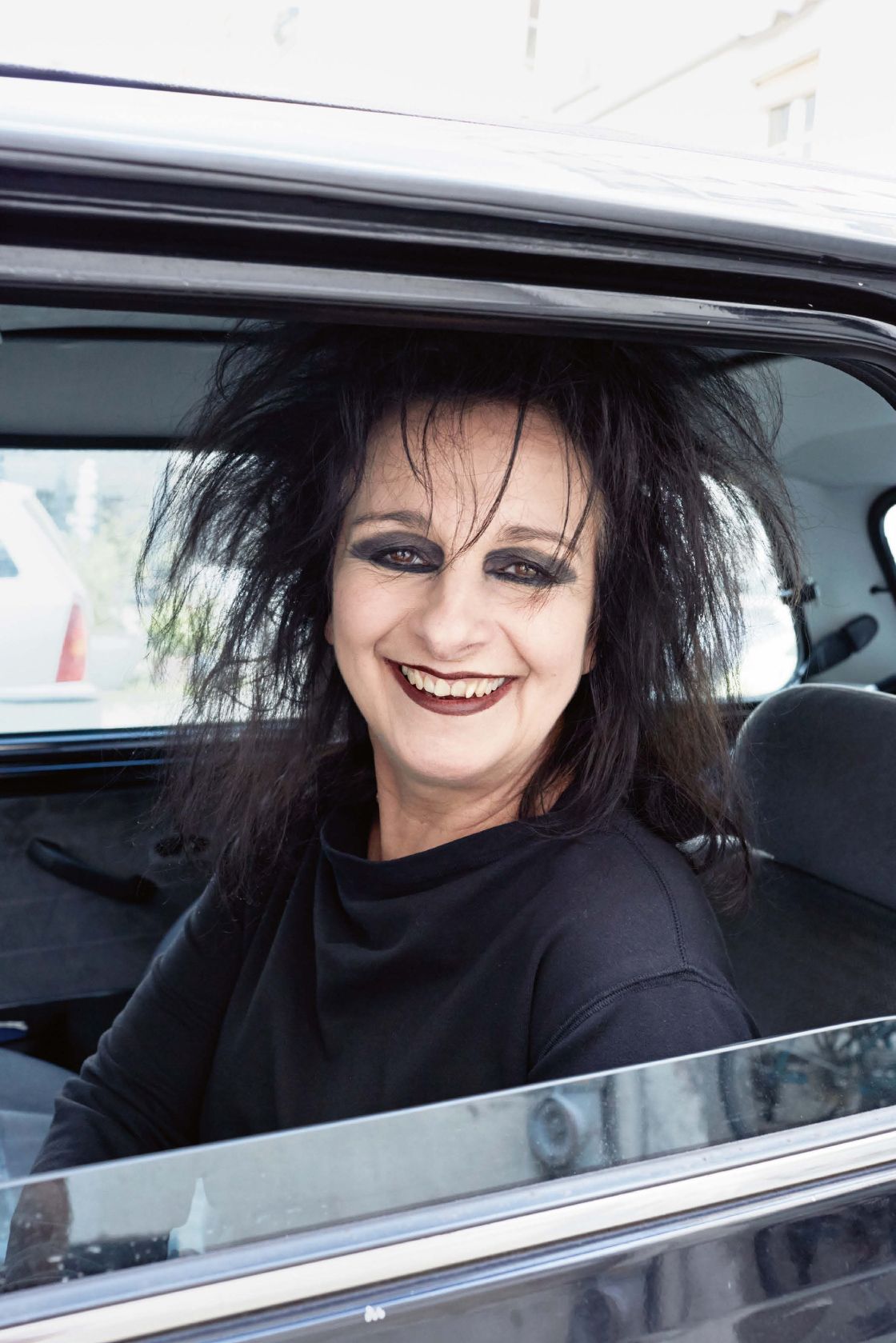
Black is a Hard Drug: ODILE DECQ
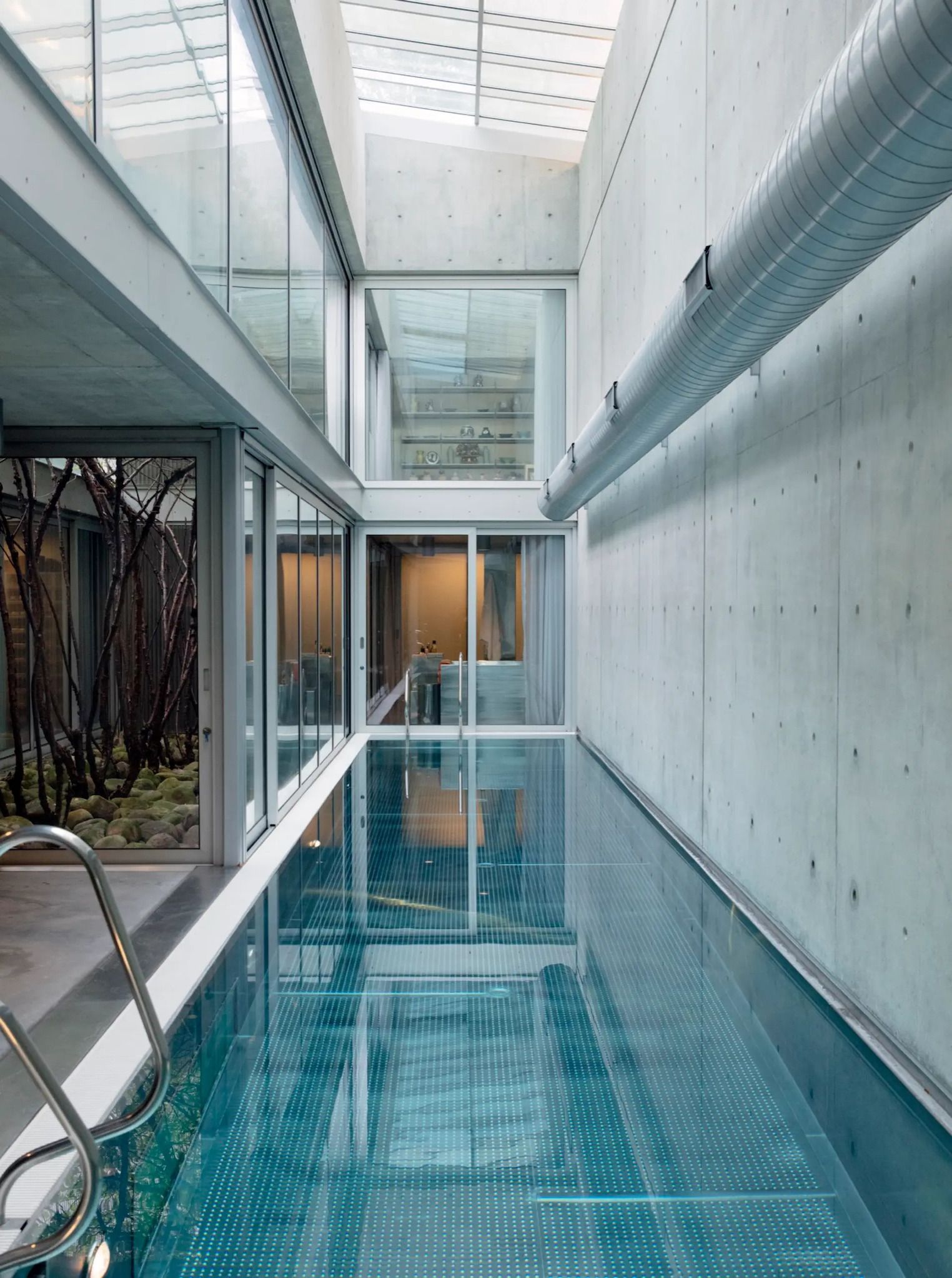
KIM JONES Interiors: A Room of One’s Own
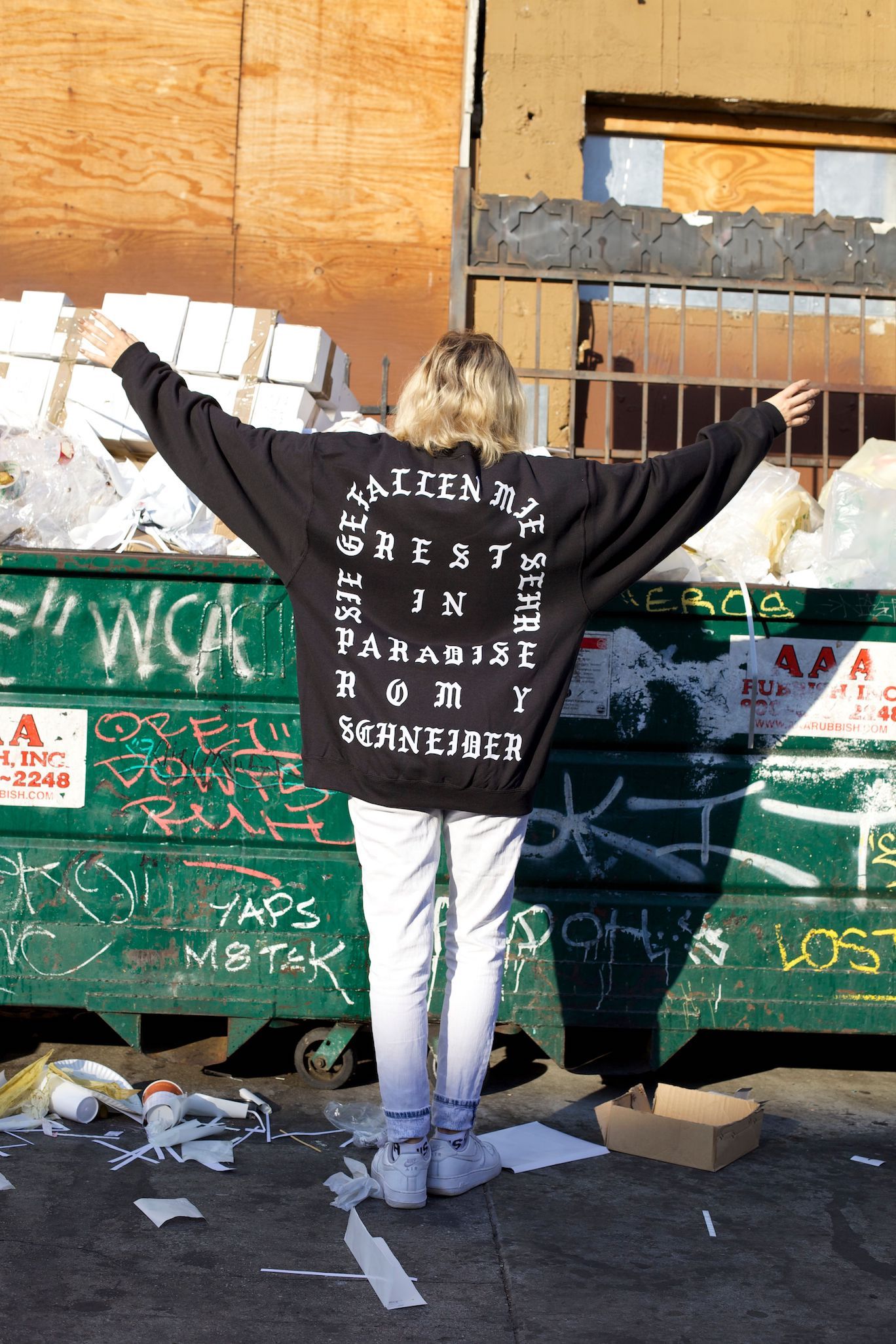
CALI THORNHILL DEWITT’s Sweatshirts “Pour One Out” for BIGGIE SMALLS, MASSIMO VIGNELLI, and ROMY SCHNIEDER